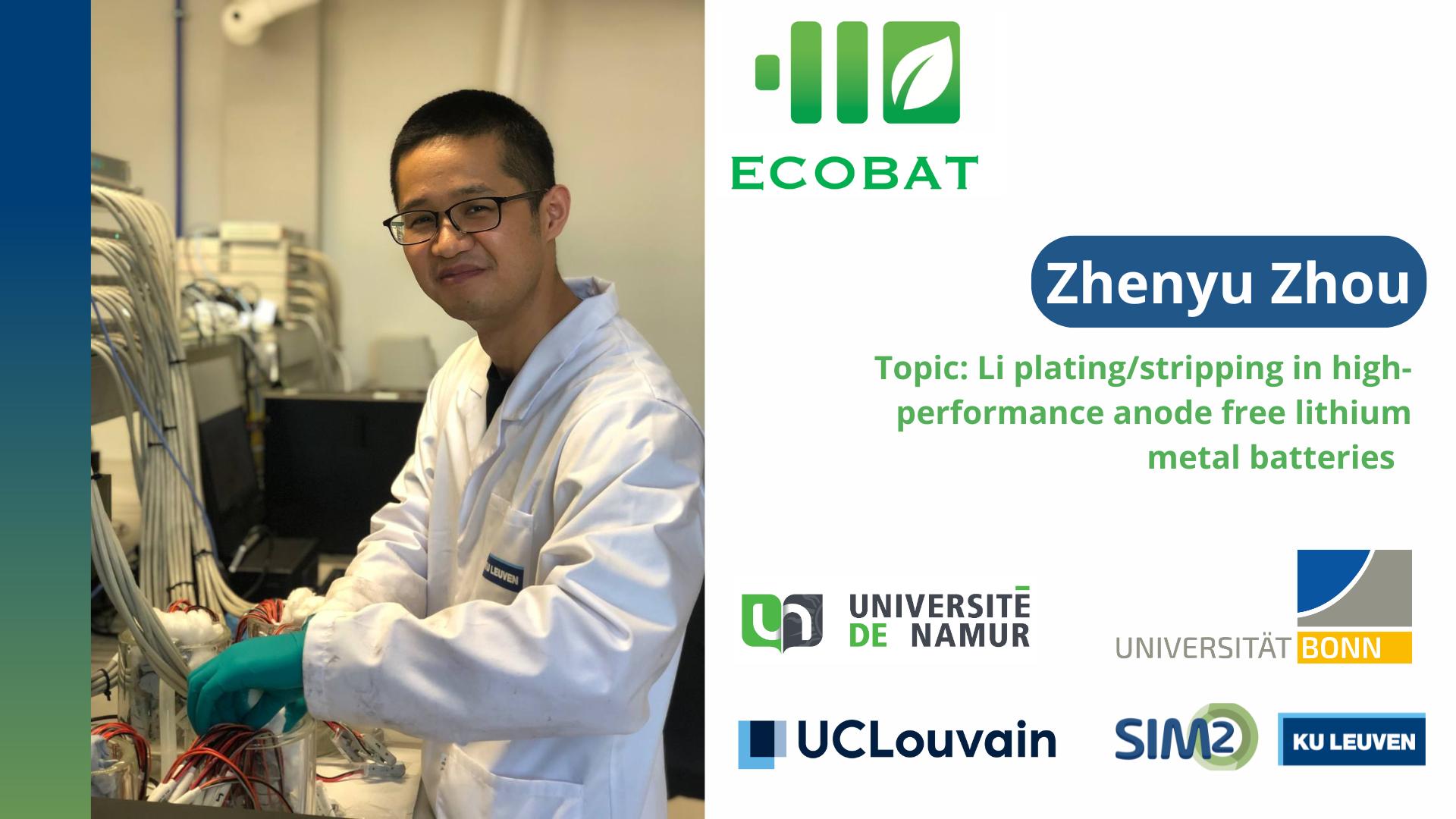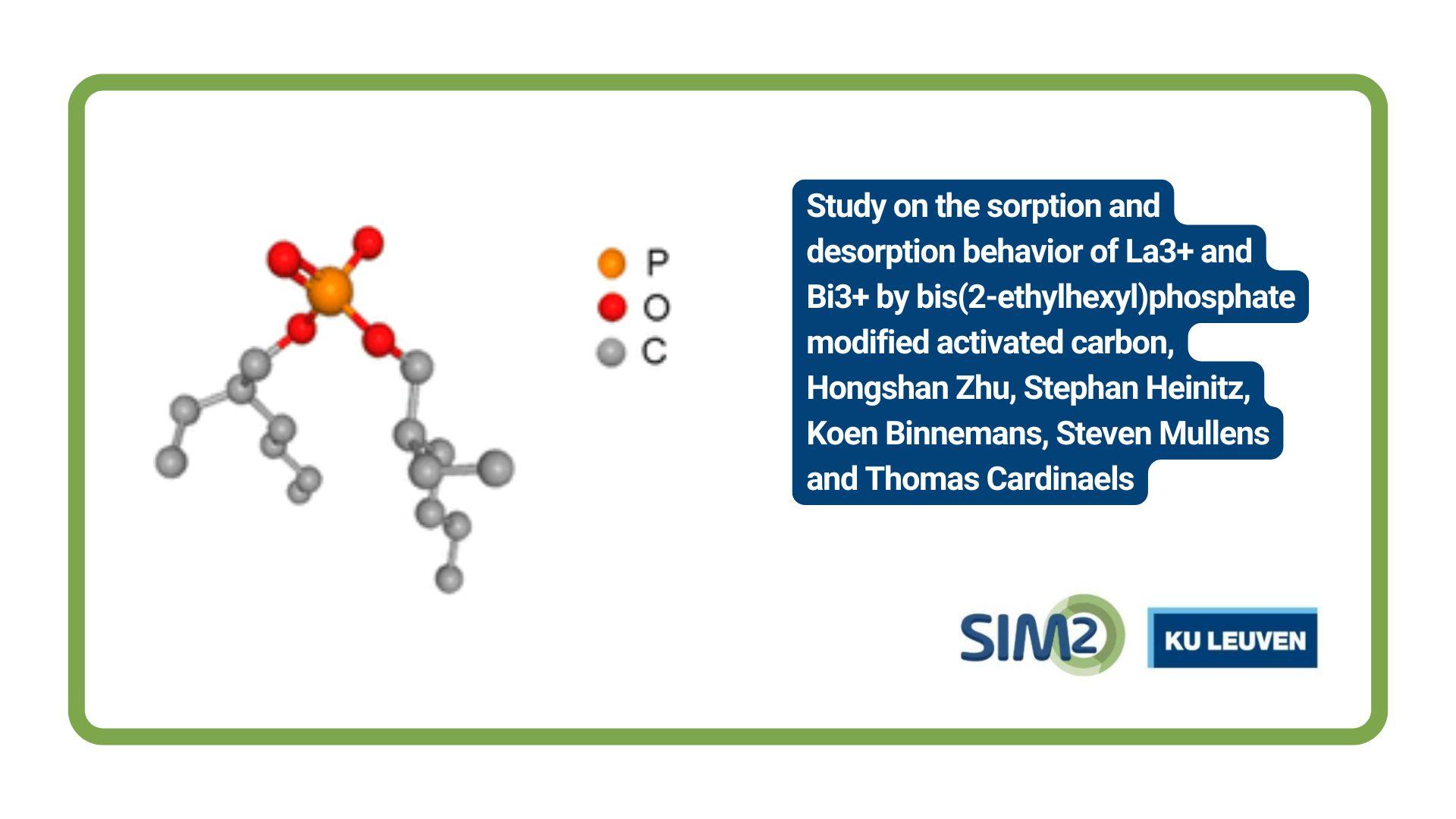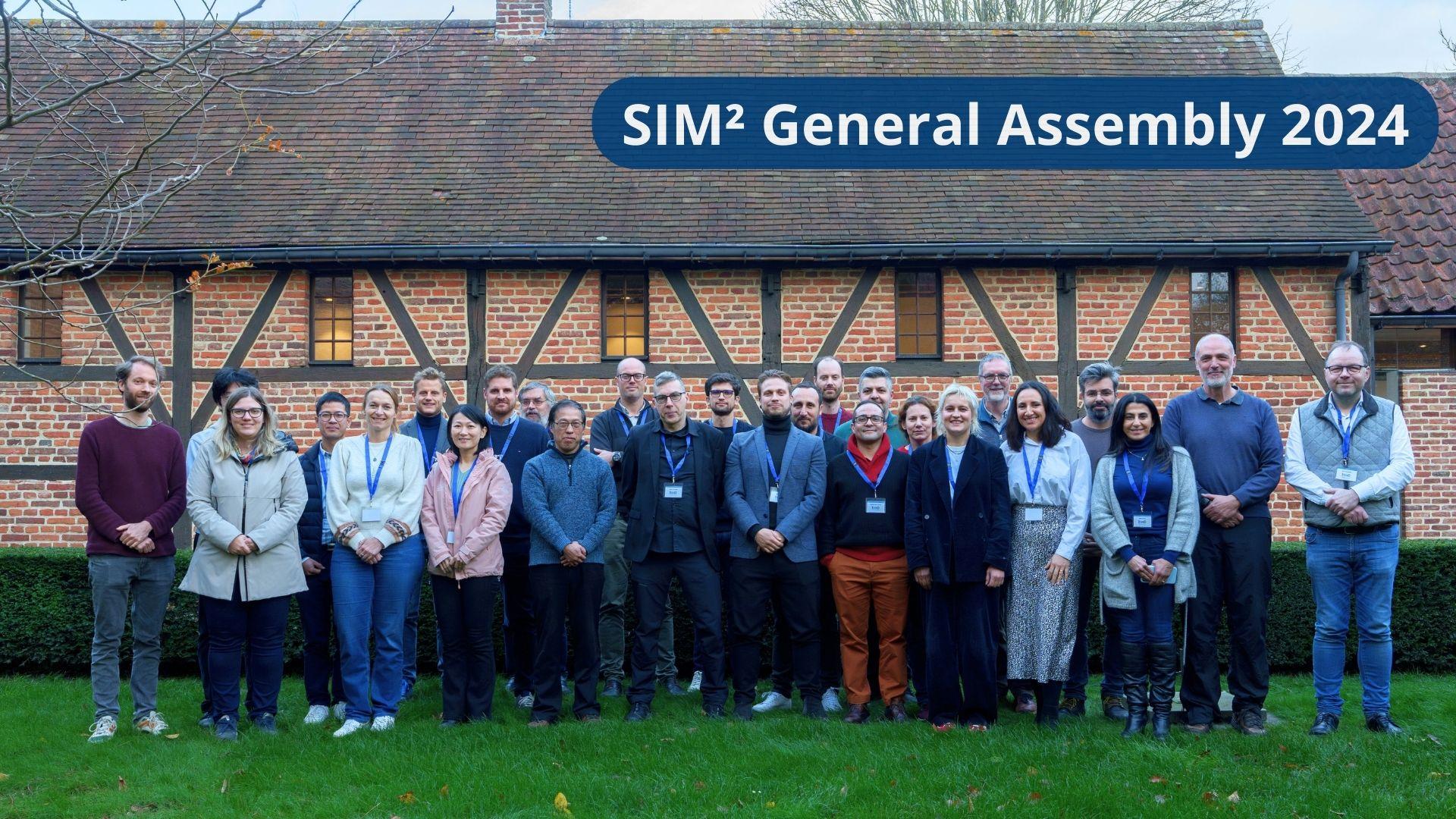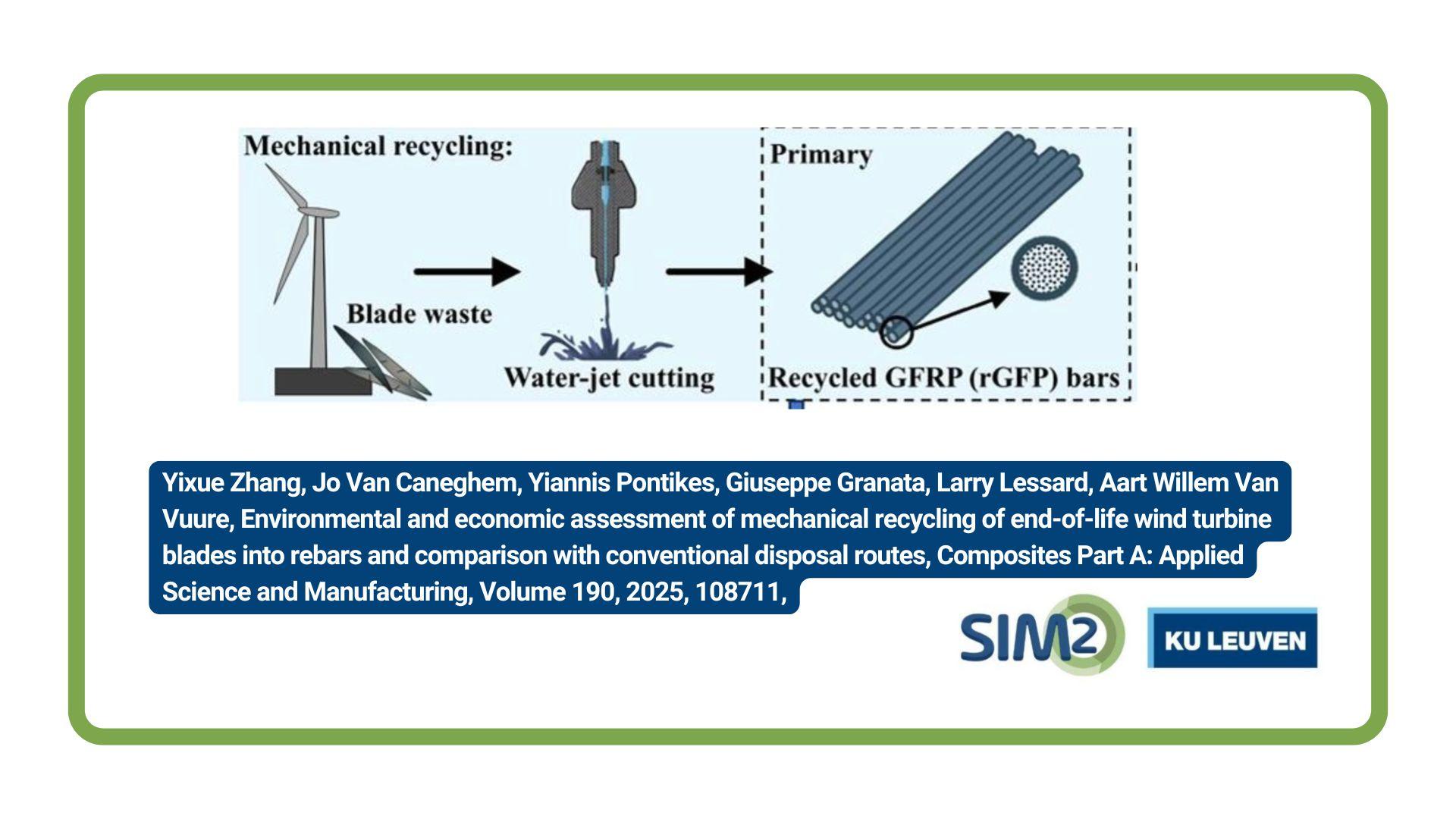Zhenyu was born in East China, in the Anhui province. He arrived in Belgium in 2021 to pursue his PhD in the group of Professor Fransaer, in the Materials Engineering department*. Since 2023, he has been working on the Ecobat project. His task is the development of a high-performance anode-free lithium metal battery. For this, he is optimising the copper current collector surface to create an ideal configuration for lithium plating and stripping, which is part of Work Package 2, “The metal anodes and interphases – bridging the gap between theory and experiment”. Zhenyu is also investigating the solid electrolyte interface (SEI) and how its different components contribute to lithium plating and stripping.
What is your personal goal in Ecobat project?
To create a good current collector for a lithium metal anode-free battery that has both a high coulombic efficiency and high cycling performance. And of course, a Science or Nature family publication wouldn’t hurt.
What attracts you in Ecobat project, and what is the most challenging part?
Since my postgraduate, I have been working on some projects related to batteries. As lithium-metal batteries have a higher capacity than the currently used lithium-ion batteries. This situation also works between other metal and metal ion batteries. I believe metal batteries are the ones for the future. This is a major motivation for me in this project.
The most challenging part is that sometimes the equipment I use does not work properly. Additionally, there are often long waiting times, such as waiting for replies to emails, which slows down my work.
What will the batteries of the future look like?
I can see people using wearable batteries that harness the heat of our bodies or the air movement around us to recharge. As an ultimate energy source, I can also imagine us using small, controlled nuclear fusion-based batteries.
How do you stay motivated to do research?
I like to learn something new and conduct experiments. Exploring new phenomena really excites me. Additionally, I enjoy bringing innovative ideas to life. For example, look at the fibrous battery I made recently: it actually allows you to charge your phone! [read the paper of Zhenyu here]
We are talking batteries here… So how do you recharge yourself?
I love going to the gym and playing badminton. Sports really help clearing my mind. Also, I enjoy travelling and plan to visit as many European countries as possible, if possible.
What do you like about living in Belgium?
I like the climate here, especially in the summer when the temperature is only around 25 degrees Celsius, whereas in my hometown, it exceeds 35 degrees Celsius. I also really enjoy the craft beer here; there are many flavors, each with its own unique character. Additionally, KU Leuven has a history of nearly 600 years and a strong academic atmosphere. It’s cool to interact with professors and students from different countries, as this is very helpful for my research.
What do you miss in Belgium that you have in China?
My family, I haven’t visited them more than one year, but I hope to change that soon. Also, I miss good food! In China, there is a variety of tasty food everywhere, whereas Belgian sandwiches are quite boring. That is why my Chinese colleagues and I gather every one to two weeks for a hot pot party.
* to learn more about the group of Prof. Fransaer and Materials Engineering department of KU Leuven, visit the web-site.





